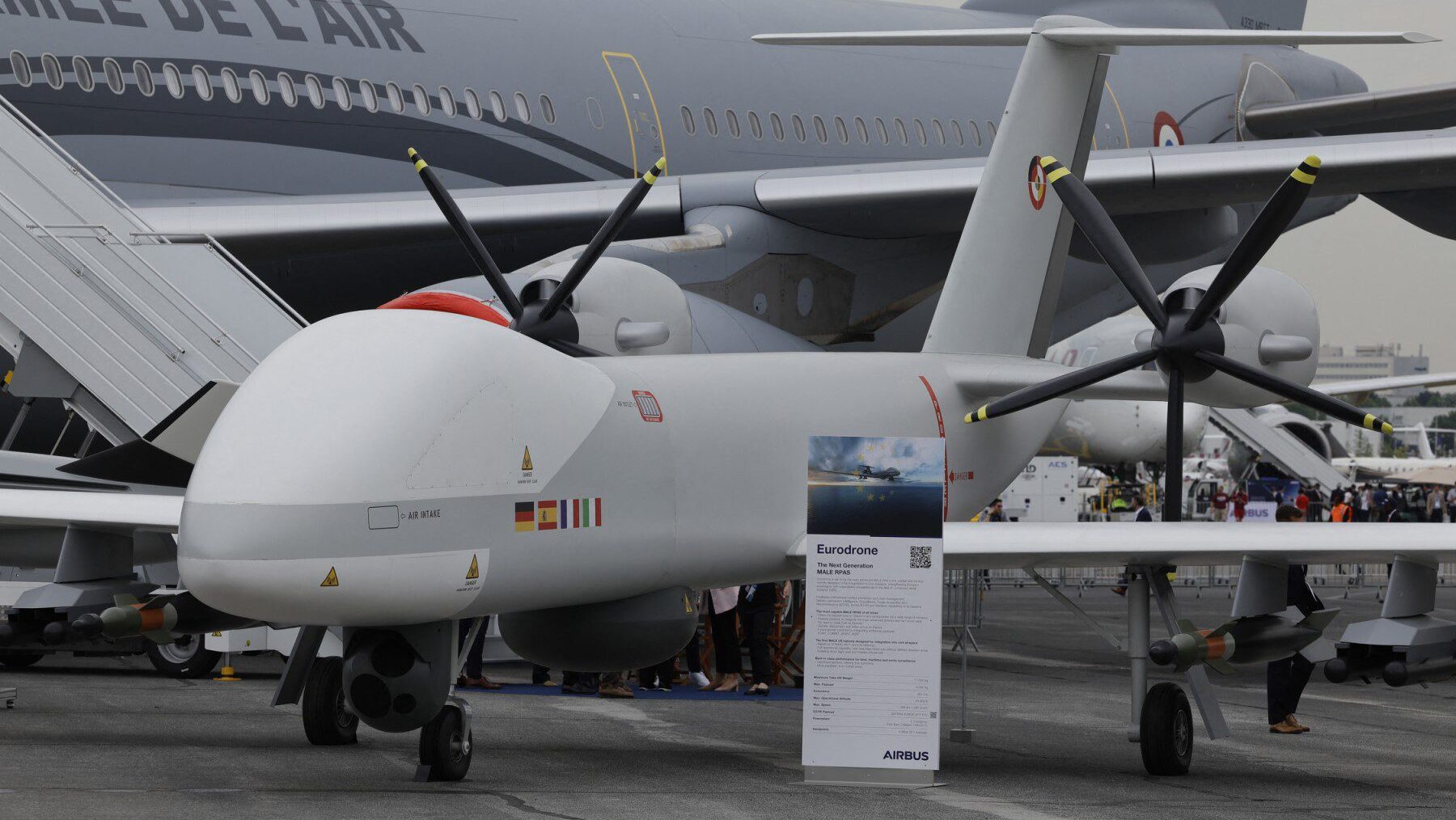
A Eurodrone, a European medium altitude long endurance remotely piloted aircraft system, is displayed during the International Paris Air Show at the Paris–Le Bourget Airport, on June 20, 2023.
Photo: Geoffroy VAN DER HASSELT / AFP
A recent EU attempt to fund local drone production appears to be derailed due to national infighting, project delays, and bureaucracy, according to a report by the German military. The authors project how various national armed forces in Europe are becoming dependent on foreign-manufactured drones well into the next decade.
Delays to Eurodrone—an armed, long-distance drone currently under development in Europe—are particularly likely to increase dependence on Israeli drones, beginning in Germany, with the Bundeswehr describing how Israeli imports were being used as a ‘bridging solution’ until the EU-backed alternative came online.
Relations between Brussels and Israel are at a low point over the EU’s growing criticism of Israel’s counteroffensive against Hamas terrorists in Gaza. While only ten of the 27 EU states currently recognize Palestine as a state, support for Palestinians in Gaza is wide-spread in the bloc. Two weeks ago, EU foreign ministers agreed on a statement calling for “an immediate humanitarian pause leading to a sustainable ceasefire”—challenging Israel’s stated position that no ceasefire will be possible until Hamas releases the hostages taken on October 7th. Israel has continuously been treated as a special case by the EU, with its right to self-defence under constant question and scrutiny. Having to rely on Israeli drone technology over the next decade would force pro-Palestinian EU countries to temper their criticism of Israel and would also complicate any ambition in Brussels to influence the Jewish state’s relationships with its hostile Islamist neighbours.
A key pillar of Eurocrat moves to forge a strategically autonomous EU defence industry— away from the United States and other powers—the ‘Eurodrone’ project is led by a pan-European team of manufacturers, with the aim of being deployed by 2030. Despite this ambition—and a €7.6 billion price tag—reports indicate that the project is bogged down, with delays likely into 2035. Bickering has erupted between various French, Italian, and German companies over the logistics of the necessary work.
The invasion of Ukraine has highlighted the growing importance of drone warfare in the modern era. Europe is seen as failing to develop its own native drone manufacturing industry, instead relying on such producers as Turkey or China—or Israel.
The European Commission has financed Eurodrone with €100 million worth of subsidies so far, with half the overall cost being footed by German taxpayers. The project is already over budget by €1.4 billion, despite being in its earliest stages.
Failure to cultivate an indigenous drone industry would seriously affect EU ambitions to grow strategically autonomous from the U.S. and China. Recent calls from Brussels bureaucrats to centralise defence procurement were met with scepticism from various industry chiefs and member states, who warned that the EU is simply not capable of managing defence despite the federalist rhetoric.
More worryingly for Europe, Erdoğan’s Turkey has become a world leader in drones. The low-cost technology is also currently used by Iran-backed Houthi militias to attack western shipping in the Red Sea.
